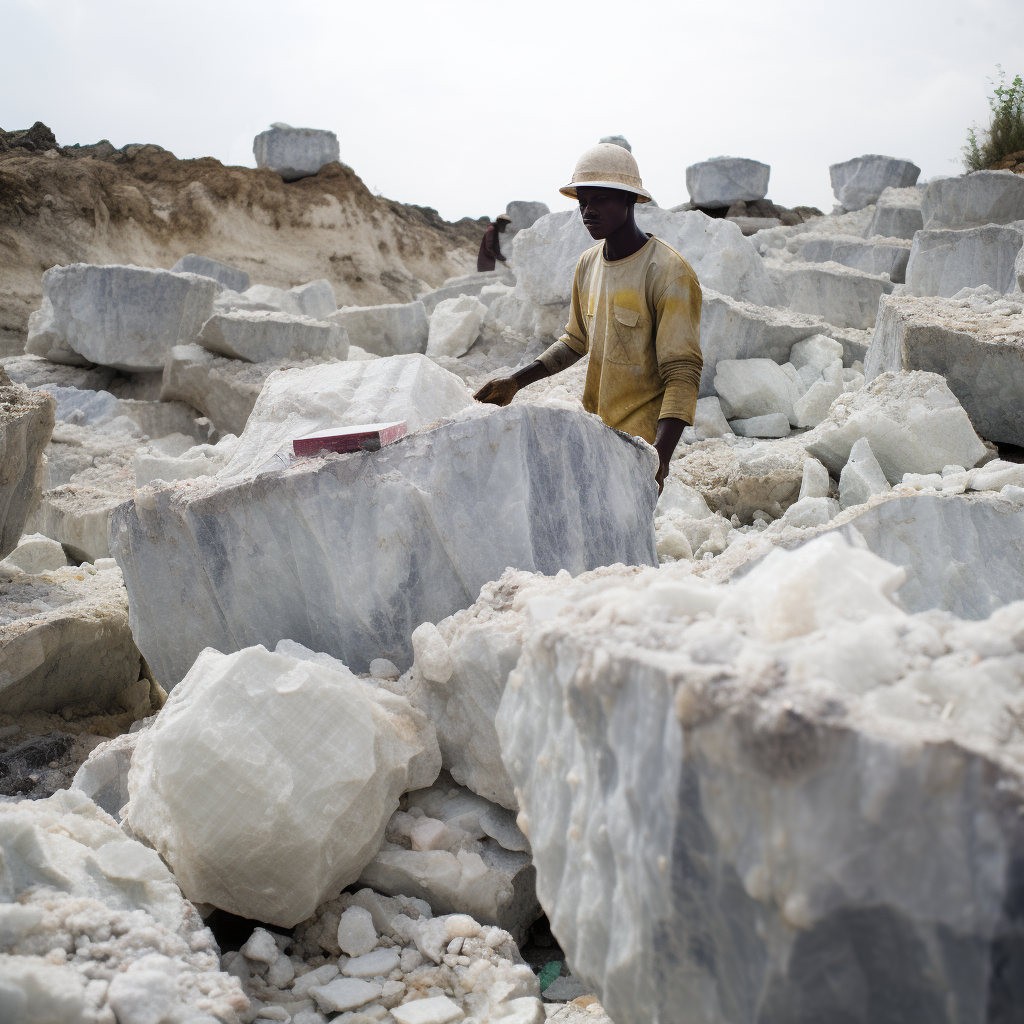Nigeria’s Lithium Discovery: A Game-Changer for the Economy

Nigeria has recently stumbled upon a goldmine, or rather a lithium mine, that could potentially revolutionize its economy. The country’s vast deposits of lithium, a crucial component for batteries used in electric cars, laptops, and mobile devices, have caught the attention of global players like Elon Musk. However, Nigeria’s Minister of Mines and Steel Development, Olamilekan Adegbite, has set a condition for any potential partnership with Tesla – the company must establish battery-making factories within Nigeria.
The value of lithium has skyrocketed from $6,000 per tonne in 2020 to a staggering $78,000 per tonne in 2022. Experts predict that by 2040, lithium will become the most valuable mineral on the planet. What sets Nigeria’s lithium apart is its high-grade quality. Dr Abdulrazaq Garba, the director-general of the Nigerian Geological Survey Agency, revealed that while the global standard for lithium oxide content starts at 0.4%, Nigeria’s deposits range from 1% to an astonishing 13%.
In Nigeria, the mining industry is regulated by the Federal Government through the Ministry of Mines and Steel Development. To safeguard its resources and oversee the exploration and exploitation of solid minerals, Nigeria enacted the Nigerian Mineral and Mining Act in 2007. This legislation grants ownership and control of lands with commercial mineral quantities to the Federal Government, effectively prohibiting unauthorized individuals from engaging in mining activities.
To mine lithium or any other solid mineral in Nigeria, companies must obtain specific mineral titles issued by the government. These titles include reconnaissance permits, exploration licenses, small-scale mining leases, mining leases, quarry leases, and water use permits. The type of title required depends on the nature of the mining activity.
A reconnaissance permit allows the holder to collect surface samples for a year, while an exploration license grants exclusive rights for exploration within a designated area for three years, with the possibility of renewal. Small-scale mining leases are issued upon fulfilling the conditions of an exploration license and permit exclusive small-scale mining operations within a defined area. Mining leases, on the other hand, are granted for commercial-scale mining and are valid for 25 years, renewable every 24 years. Quarry leases and water use permits are also available for specific mining activities.
The discovery of lithium in Nigeria comes at a time when the world is transitioning towards renewable energy sources. The demand for lithium batteries, in particular, has surged, driven by the global focus on clean and affordable energy. This discovery presents a tremendous opportunity for Nigeria to boost its economy by attracting foreign direct investment, creating employment opportunities, increasing foreign exchange earnings through exports, fostering technology transfer, and embracing the energy of the future.
In conclusion, Nigeria’s lithium discovery has the potential to be a game-changer for the country’s economy. With its high-grade deposits and the growing demand for lithium, Nigeria can position itself as a key player in the global lithium market. By leveraging this opportunity, Nigeria can unlock significant economic benefits and contribute to the sustainable development goals of affordable and clean energy. It’s an exciting time for Nigeria, and the future looks bright with the power of lithium.




